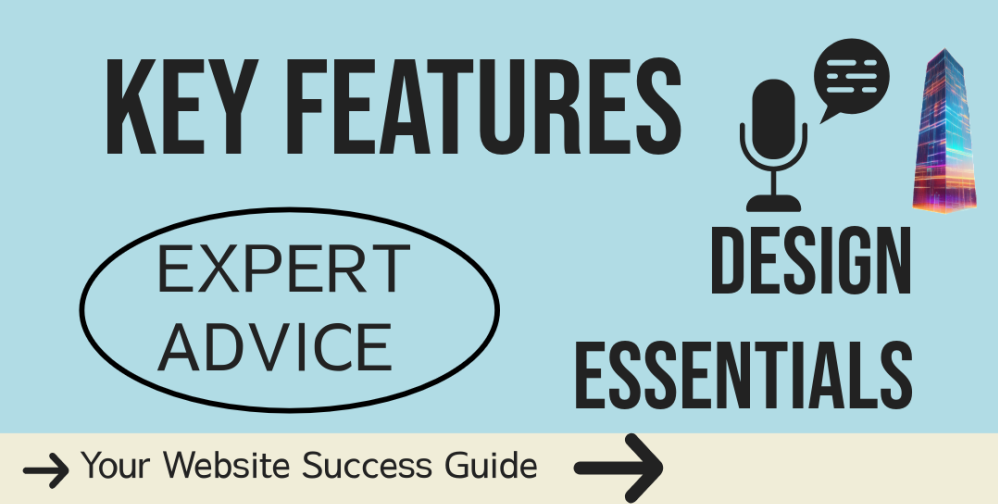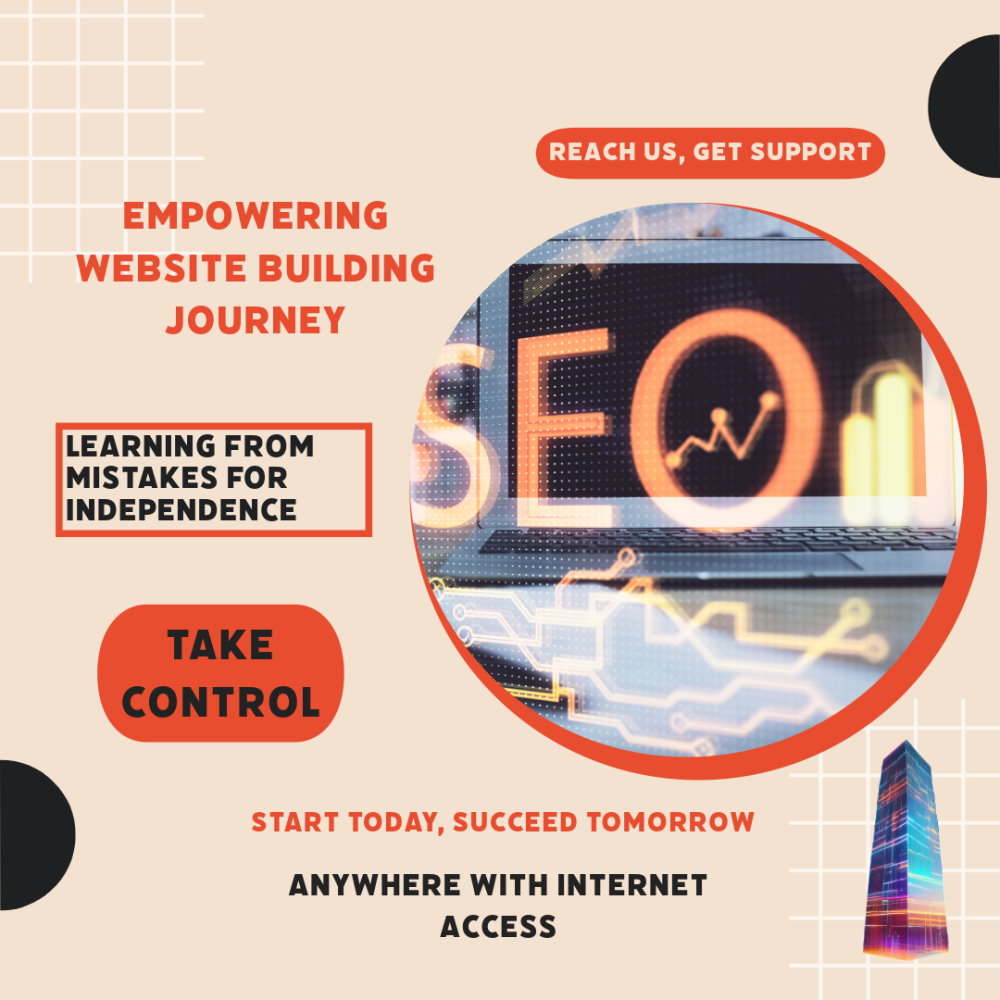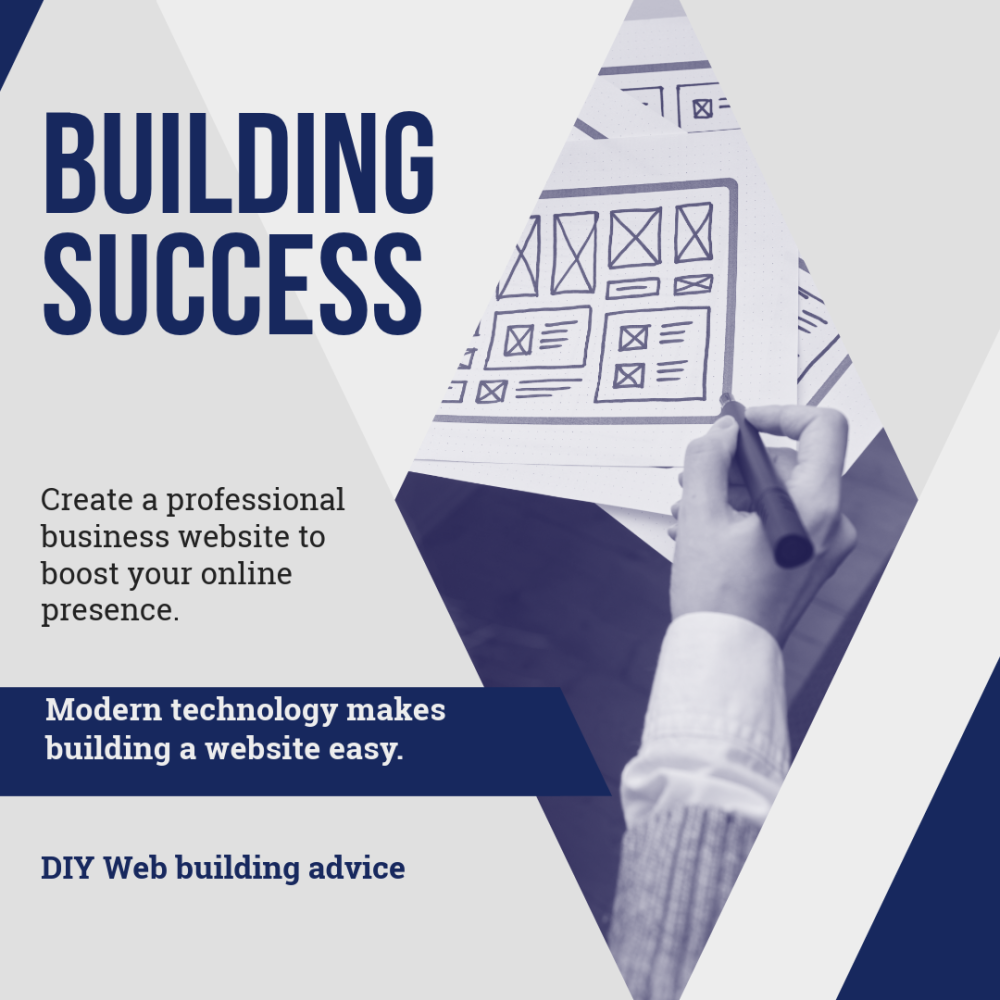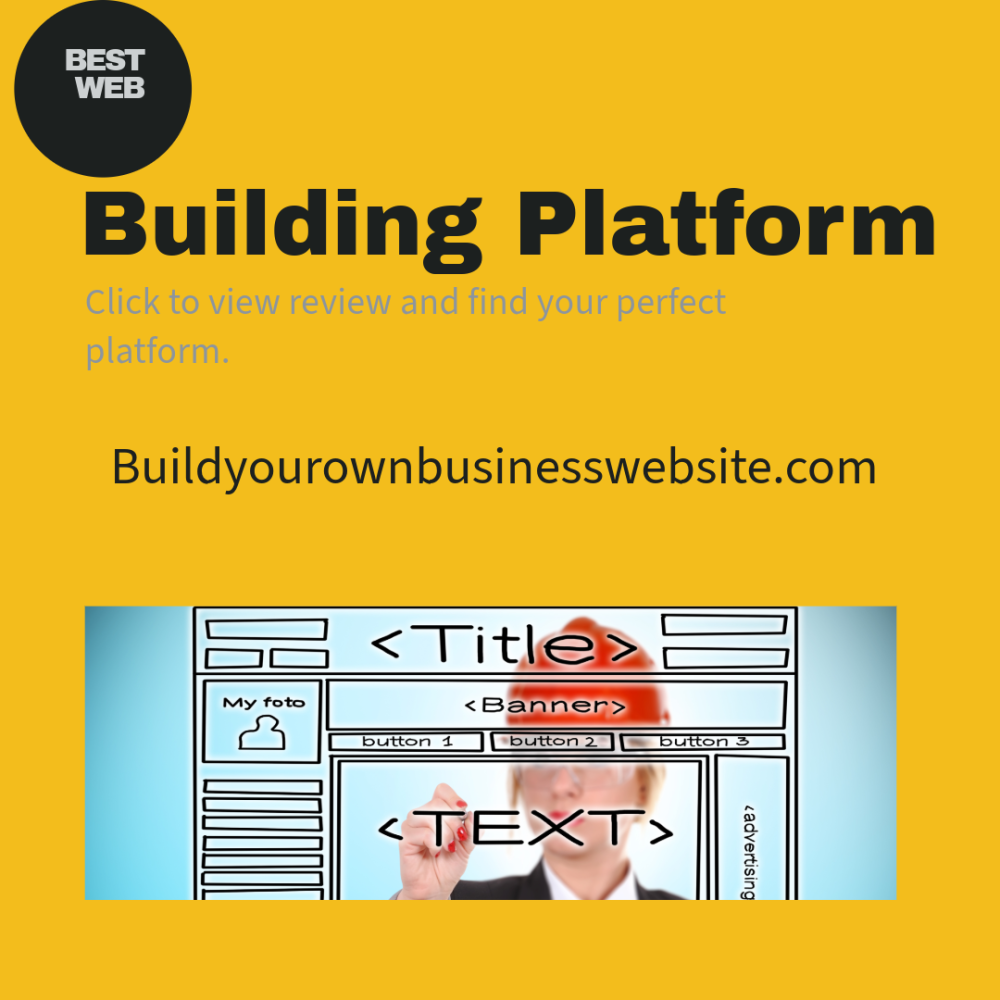Introduction to Essential Features

A successful business website is vital in today’s digital landscape. It not only serves as your online storefront but also establishes credibility and connects you with potential customers. A well-designed website can significantly enhance your brand’s visibility and attract more clients.
When building your site, it’s essential to focus on several key features. These include a user-friendly interface, mobile responsiveness, clear navigation, strong calls to action, and optimized content. Together, these elements create a seamless experience that keeps visitors engaged and encourages them to explore your offerings further.
User-Friendly Design
Building a business website is crucial for small business owners, and there are a few key components to keep in mind for a successful online presence.
First, intuitive navigation is essential. Your visitors should be able to find what they need quickly and easily. Think of it as laying a clear path through a bookstore; you want customers to effortlessly browse and discover what they’re looking for.
Next, responsive design is a must. With people accessing websites on various devices—be it phones, tablets, or desktops—your site should seamlessly adapt to each screen. This approach not only enhances user experience but also boosts your credibility as a professional business.
Lastly, don’t underestimate the power of clear call-to-action buttons. These are your guiding lights, encouraging visitors to take specific actions, whether that’s making a purchase, signing up for a newsletter, or contacting you for more information. Being direct and clear in what you want them to do can significantly increase engagement.
By focusing on these elements, you can create a website that truly serves your business and your customers well.
Fast Loading Speeds

As a small business owner, the speed of your website can significantly impact user experience and ultimately your bottom line. When visitors encounter slow loading times, they’re more likely to leave your site, which means missed opportunities for sales and engagement.
To assess and improve your website’s loading speed, there are various tools available, such as Google PageSpeed Insights, GTmetrix, and Pingdom. These platforms provide valuable insights into your site’s performance and highlight areas that need improvement, making it easier for you to take action.
When it comes to best practices for optimizing loading times, consider minimizing image sizes, leveraging browser caching, and reducing the number of HTTP requests. Additionally, choosing a reliable hosting provider can make a significant difference in how quickly your pages load.
By focusing on these aspects, you not only enhance the user experience but also encourage more visitors to stay and engage with your business.
Choosing the right web building platform is a game changer for small business owners, especially when it comes to speed optimization and SEO. Platforms like Wealthy Affiliate take much of the guesswork out of creating a fast, efficient website. They offer built-in tools and features that automatically handle speed optimization, ensuring that your site loads quickly without requiring extensive technical knowledge.
See Wealthy Affiliate review here
For instance, Wealthy Affiliate employs optimized server infrastructure, which means you benefit from reliable hosting that enhances loading speeds. Additionally, they provide user-friendly design templates that are inherently lightweight, reducing the load time further.
Transitioning into SEO, a strong web building platform also includes an SEO framework designed to guide you through best practices. From keyword optimization to meta tags and sitemaps, these tools simplify the process of making your site search-engine friendly. Wealthy Affiliate, for example, brings together training and resources that help you understand how to improve your site’s visibility on search engines, teaching you how to effectively use keywords and create quality content.
In essence, by leveraging a comprehensive platform like Wealthy Affiliate, you can focus on building your business rather than getting bogged down by technical details.
Have you considered using a specific platform for your website?
Search Engine Optimization (SEO)

In today’s digital landscape, SEO plays a crucial role in attracting organic traffic to your website. A strong SEO strategy not only helps potential customers find your business but also establishes your brand’s authority. Wealthy Affiliate gives your business a competitive edge by seamlessly incorporating an SEO framework into every site built on its platform. This means you have essential SEO elements in place from day one, allowing you to focus on growing your audience.
On-page SEO techniques, such as optimizing titles, headers, and meta descriptions, are vital for ensuring search engines understand your content. Wealthy Affiliate provides tools and tutorials to help you implement these techniques effectively. Furthermore, off-page SEO—like building backlinks and engaging with social media—can significantly enhance your website’s credibility and visibility. Wealthy Affiliate guides you through these strategies, teaching you how to connect and collaborate effectively to increase your online presence.
A fundamental aspect of SEO is keyword research and implementation. By identifying the right keywords that your target audience is searching for, you can tailor your content to meet their needs. Wealthy Affiliate not only offers training on how to conduct thorough keyword research but also provides tools to implement these keywords effectively throughout your site. This ensures that you attract relevant traffic, leading to higher conversion rates.
By utilizing Wealthy Affiliate’s integrated SEO resources, you empower your business to stand out in a competitive market. Are you familiar with any specific SEO techniques that you’ve found beneficial?
High-Quality Content

While knowledge, AI, education, and training are essential components of building a successful content strategy, they mean little without the driving force of passion. Passion fuels the creation of informative and engaging content that resonates with audiences. When you love what you write about, it reflects in your work, making your content more authentic and compelling. Wealthy Affiliate emphasizes this connection, helping you nurture your passion alongside your knowledge.
Maintaining content relevance and freshness is vital for keeping your audience engaged. It requires not just understanding trends but also a genuine interest in your subject matter. When you’re passionate about your niche, you’ll naturally seek out new information and perspectives, ensuring that your content remains timely and valuable. Wealthy Affiliate encourages you to dive deep into your interests, which helps you continually refresh your content and keep your audience coming back for more.
Incorporating multimedia elements—such as videos, infographics, and podcasts—can significantly enhance your content, but the passion behind these elements is what truly captivates your audience. It’s not just about using visuals; it’s about presenting them in a way that reflects your enthusiasm and creativity. Wealthy Affiliate teaches you how to effectively weave multimedia into your content strategy, maximizing its impact while encouraging your personal flair.
Ultimately, passion acts as the catalyst that transforms knowledge and training into compelling content that engages and inspires your audience. What topics ignite your passion the most?
Secure and Trustworthy

Staying informed about current laws and regulations can indeed be challenging. This is particularly true when it comes to ensuring website security, which is crucial in today’s digital landscape. The implementation of SSL certificates, for example, not only encrypts data transferred between users and your site but also builds trust with visitors. Without proper guidance, understanding the latest requirements and best practices for these security measures can be overwhelming.
Furthermore, clear privacy policies and terms of service are essential for any website. They communicate how user data will be used and protected, which is mandated by various regulations. Without proper guidance on crafting these documents, it’s easy to unintentionally overlook necessary compliance elements.
Lastly, showcasing testimonials and reviews plays a critical role in establishing credibility. They provide social proof that can reassure potential customers about your brand’s reliability. However, knowing how to ethically collect and display these testimonials to comply with advertising laws often requires specialized knowledge.
Staying up to date with website security, privacy considerations, and user engagement strategies is vital, yet difficult without the right resources and understanding of current legal frameworks.
Effective Communication Channels

When building your own web business website, incorporating multiple contact options is crucial. Providing email, phone, and chat allows customers to reach you in the way they prefer, enhancing customer satisfaction.
A contact form is also important; it streamlines communication and collects inquiries efficiently, making it easier for you to manage leads.
Integrating social media extends your reach significantly. It allows for real-time engagement with your audience and drives traffic back to your site, which is essential for growing your business.
Have you read any good books on web development or business recently?
Of course not. Most of us learn online… especially when the subject is how to build a website.
Wealthy Affiliate’s web building platform truly stands out for its modern learning experience. It combines comprehensive modules with interactive resources, allowing users to learn at their own pace. With video tutorials, live chats, and a supportive community, it facilitates a hands-on approach to building a web business. This integrated method ensures that learners not only gain theoretical knowledge but also practical skills that can be immediately applied.
See Wealthy Affiliate Review here.
Analytics and Performance Tracking

Tracking website performance is essential for anyone looking to optimize their business online. By monitoring how your site is performing, you can identify what works and what doesn’t, enabling you to make informed decisions. Improved performance can lead to better user experiences, reduced bounce rates, and ultimately higher conversion rates. Regularly analyzing your website can highlight strengths, such as popular pages and traffic sources, while also revealing weaknesses that need attention to enhance overall effectiveness.
When it comes to key metrics to monitor, several stand out as particularly impactful. Metrics like page views, unique visitors, bounce rate, and average session duration provide insights into user engagement. Conversion rates and click-through rates (CTR) indicate how well your content and calls to action resonate with your audience. Tracking these metrics over time empowers you to adjust strategies, fine-tune marketing efforts, and cater to your visitors’ preferences more effectively.
Utilizing tools like Google Analytics can significantly enhance your analytics capabilities. These tools simplify the process of collecting and interpreting data, providing powerful dashboards and automated reports. Google Analytics, for example, offers in-depth insights into user behavior, traffic sources, and even geographical data. Other platforms, such as SEMrush or HubSpot, can further enrich your analytical approach, allowing you to track social media performance and SEO effectiveness. With the right tools, you can transform data into actionable strategies, ensuring your business website continuously evolves and thrives.
What analytics tools have you found most useful in your own experience?
Conclusion and Further Actions

A business website plays a crucial role in today’s digital ecosystem, serving as both an online storefront and a credibility-building tool. It connects businesses with potential customers, enhancing visibility and engagement. A well-designed website not only reflects professional standards but also creates a lasting impression on visitors. When constructing such a site, it’s important to incorporate key features that foster a positive user experience and encourage potential customers to interact with your brand.
Key components of an effective business website include user-friendly design, mobile responsiveness, fast loading speeds, Search Engine Optimization (SEO), and high-quality content. A user-friendly interface allows easy navigation, ensuring visitors can find the information they seek without frustration. Mobile responsiveness is critical due to the diverse range of devices used by customers to access websites, enhancing the overall user experience. Fast loading speeds are equally important, as slow sites can lead to high bounce rates and lost sales opportunities. Effective SEO techniques help businesses attract organic traffic, while engaging, high-quality content keeps customers returning.
Another important aspect of a business website is security and effective communication channels. Implementing security measures like SSL certificates builds trust with visitors, ensuring their data is protected. Offering multiple contact options—including email, phone, and chat—further enhances customer satisfaction, allowing inquiries to be managed efficiently through streamlined contact forms. Integrating social media not only increases engagement but also drives traffic to the website, amplifying the reach of the business. Together, these features create a robust platform for business growth and customer engagement.
Essential Features of a Business Website
1. User-friendly interface
2. Mobile responsiveness
3. Fast loading speeds
4. Search Engine Optimization (SEO)
5. High-quality, engaging content
6. Clear navigation
7. Strong calls to action (CTAs)
8. SSL security and trust signals
9. Multiple contact options (email, phone, chat)
10. Integration with social media platforms

